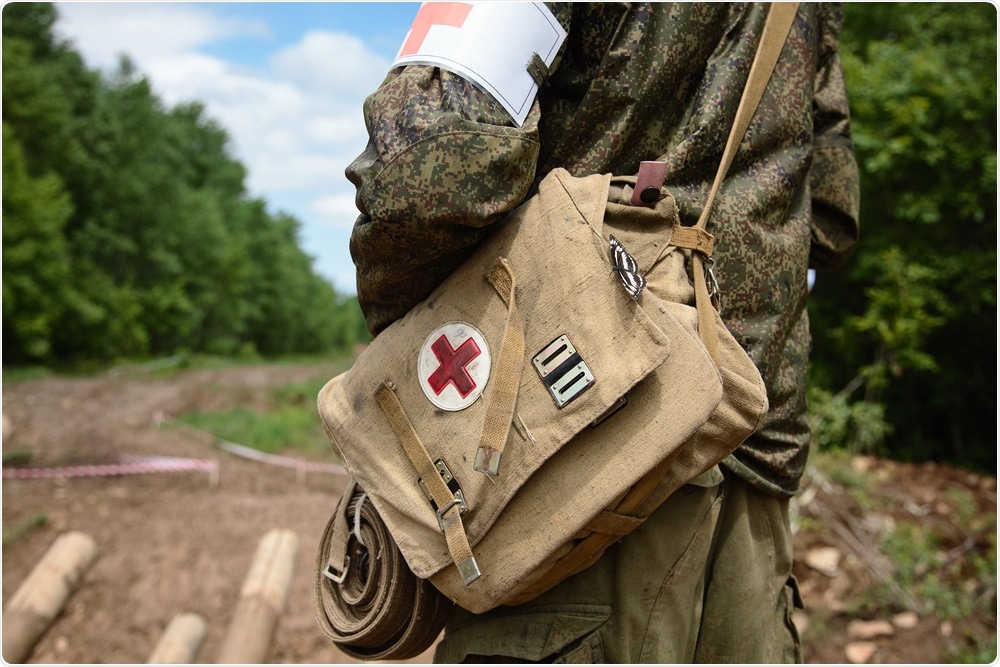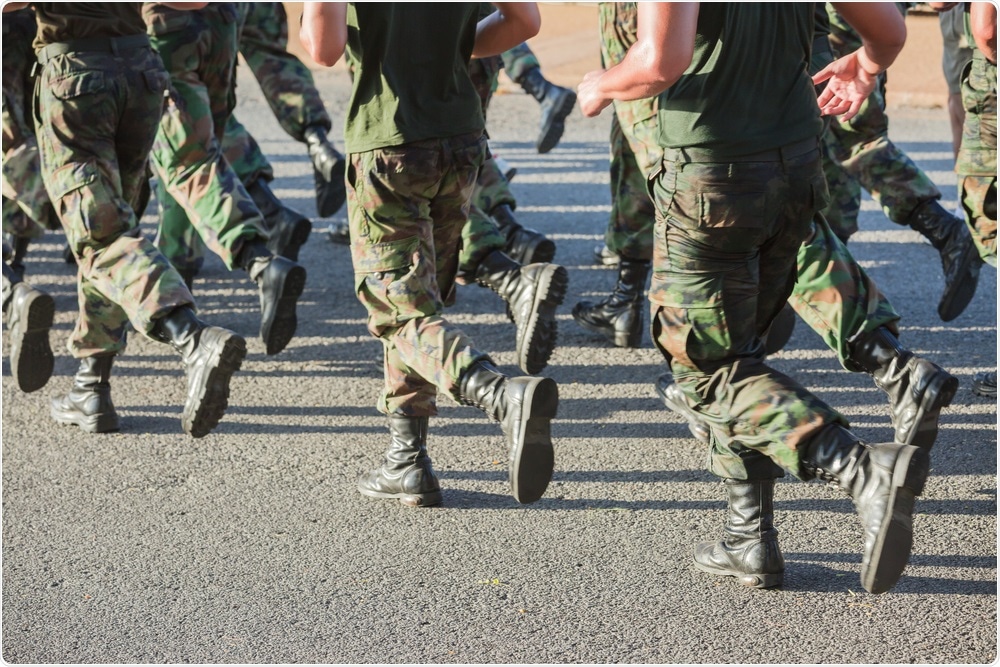Sqn Ldr Robert M. Gifford from the University of Edinburgh discusses the latest endocrinological research from the front line, and what his talk will cover at Medical Innovation 2018.
Please give a brief overview of what your session will cover at Medical Innovation 2018.
The main part of my session will focus on the endocrine effects of arduous military training on women, using evidence from Antarctica and Sandhurst.
 Image Credit: Vixi / Shutterstock
Image Credit: Vixi / Shutterstock
Previously, high rates of adverse reproductive, psychological and bone health-related outcomes have been reported in military women, compared with men or civilian women.
The reasons for this are poorly understood, but many speculate that hormones are responsible, since they mediate differences in sex.
At Medical Innovation 2018, I will present data from two observational studies which have attempted to understand the nuances of female hormone physiology in arduous training and their impact on reproduction, stress and bone.
The session will describe studies based on the Army Ice Maidens, in Antarctica, and sex comparator aspects of the Female Endocrinology in Arduous Training (FEAT) Study and discuss their findings, before exploring the implications for women entering arduous training.
The Commissioning Course at the Royal Military Academy, Sandhurst is an arduous, year-long basic military training course undertaken by male and female Officer Cadets.
The FEAT study’s objective is to understand the reproductive, stress, bone health and nutritional changes in 60 women in military training ab initio. The preliminary findings compare a subgroup with a cohort of 10 men.
The Army Ice Maidens were the all-female first team to complete an Antarctic ski traverse unassisted. The expedition provided a unique investigation of the absolute extremes of exercise, with detailed dynamic hormone testing, body composition measurements and high-resolution bone architecture scans to explore the impact of the expedition on women and the rates of recovery.
What do you think understanding the future of such an unexplored topic looks like, and how will it shape the way medical practices develop?
From what is already known, women and men experience different medical outcomes during military training and employment.
By understanding the biological underpinning these differences, we aim to develop evidence-based mitigation strategies to promote training equity (rather than just equal opportunities).
As well as protecting women from injury and illness, an improved understanding of the etiology will equip policymakers and individuals to make evidence-based decisions about training and employment.
Furthermore, studies like these may allow medical practice and military training design to become more closely aligned.

Image Credit: Piter Parker / Shutterstock
Emerging technologies like mobile health applications and sensors can enable long-term data collection, allowing doctors to assess and improve training outcomes.
Using this data, we could ultimately generate tailorable training programmes to avoid undue risk to Defence personnel, without compromising combat effectiveness.
Why is it important to focus on 'prolonged care’ and ‘preparedness' in everyday life and in the military?
We know that the causes of many psychological and musculoskeletal injuries are related to an individual’s physiology, however, the precise causal pathways are poorly understood.
Our research aims to understand the features of arduous military training and employment which cause physiological strain.
Understanding risk factors will allow prolonged field care (PFC) providers to identify and manage risk, allow medical operations to be planned and commanded with a better expectation of risks to individuals, and identify ‘left of bang’ interventions, by describing and mitigating individuals’ injury risks during selection and training.
The Ice Maidens recently demonstrated exceptional biological resilience during an exceptionally arduous exercise exposure - far greater than has been seen in specialist military training.
The reasons for this could be simple factors, for example, they had an incremental training package rather than an abrupt-onset one, and they were afforded appropriate rest, where possible. These may be salutary lessons for preventing injury in the field.
Through the FEAT Study, we aim to validate and deliver mobile health applications which we hope could facilitate data collection across meaningful durations of training and deployment and implement positive behavioral change to mitigate against illness or injury.
Such platforms could also have great benefits to PFC delivery, allowing data collection from PFC providers.

Image Credit: Nuk2013 / Shutterstock
What are the biggest challenges in delivering ‘prolonged care’?
The PFC environment is largely undescribed, therefore prolonged field research is necessary to understand the challenges this environment provides.
Such research could take place in training or operations. It should combine qualitative and quantitative approaches, to create a provider-centered depiction of the potential challenges and how these can be managed.
The critical factor not to miss is that prevention is better than cure, and ‘left of bang’ interventions begin at selection and training.
The sex-differential in a variety of pertinent conditions, such as heat illness, stress fracture, post-traumatic stress disorder and infertility highlights that more can be done to understand and optimize physiology in order to develop mitigation strategies.
What are your priorities for the year ahead?
Following the completion of the FEAT study, we aim to highlight the findings to policymakers, in order to implement effective preventative measures.
It will be necessary to involve non-medical stakeholders and approach this creatively to avoid degrading the quality of training. Further research will also be required to better understand potential mitigating factors, such as the beneficial effects of sleep and strategies for coping with stress.
In your view, which professions will your session appeal to?
Medical Innovation attracts attendees from across the military and civil healthcare community. I very much hope policymakers, scientists with an interest in sports and nutrition physiology, trainees, and industry partners involved in the event might be interested in my session.
Where can readers find more information?
Find out more about Robert's talk, and register your interest at Medical Innovation 2018.